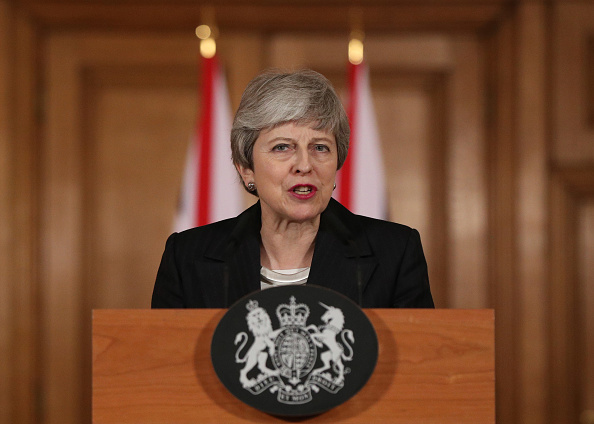Theresa May has united Westminster. Right across the political spectrum, politicians and journalists agree that her televised statement from No. 10 last night was an epic misjudgement, that seeking to pin public blame on MPs for the failure to agree a Brexit outcome has made it even less likely that they will now reach such an agreement. The PM’s awful statement, it is said, has driven away the very MPs she needs to pass her Withdrawal Agreement next week.
Consensus like that deserves scrutiny, because it’s often a cloak under which people can hide inconvenient facts.
Consider the assertion that May has alienated MPs who will not now vote for her deal. Taken at face value, that means that there are MPs who would actually vote for the deal, but will not do so because the tone and language of May’s awful statement has upset them.
Think about that: there are members of parliament who will change their vote on the most consequential choice of their political lives not because of any issue of substance or fact, but because the Prime Minister said things they didn’t like.
If that is the case, those MPs have no place in parliament, no place in public life and no place in adult society. An MP who decides their position on the Withdrawal Agreement because of May’s awful statement is simply not a serious person.
Of course, there’s another interpretation possible here. Maybe some of those MPs who are posited to be withholding support for the deal because of May’s awful statement aren’t really doing so because of that awful statement. Maybe they weren’t really inclined to vote for the statement in the first place, but are simply adducing May’s awful statement as an excuse for their position.
By all means, my fellow Westminster villagers, tell the world the story of how May’s awful statement has sunk her deal and doomed Britain to chaos. But when you do so, you should follow your own argument through to its logical conclusions and explain that you are saying MPs are being either unserious or dishonest in their approach to Brexit.
As for May, it may well be that she has handled the politics of this process abysmally. Her failures will be discussed for decades to come: the red lines, the failure to seek cross-party consensus, the lack of honesty with colleagues, the capitulation to the Tory Right – all have contrived to put her country in its current woeful position.
But so what? Debating what she got wrong is a job for historians, not supposedly seriously politicians. However we come to this dreadful situation, what matters is how the country and its collective leadership responds to that situation: blaming May for her mistakes is not just redundant (they are so obvious as to require no rehearsal), it’s a culpable form of displacement activity.
Theresa May’s mistakes are many and grave, and she will in due course answer for them to her party, to history and her own conscience. But they are a second-order issue for anyone who claims to be interested in the interests and future of this country. They don’t change the fundamental facts of where we now stand: days away from either a political or an economic disaster. The only option that averts both of those is a majority vote in the House of Commons for May’s Withdrawal Agreement.
That is the reality facing MPs and the country today and it will remain the reality. The rest is noise.







Comments